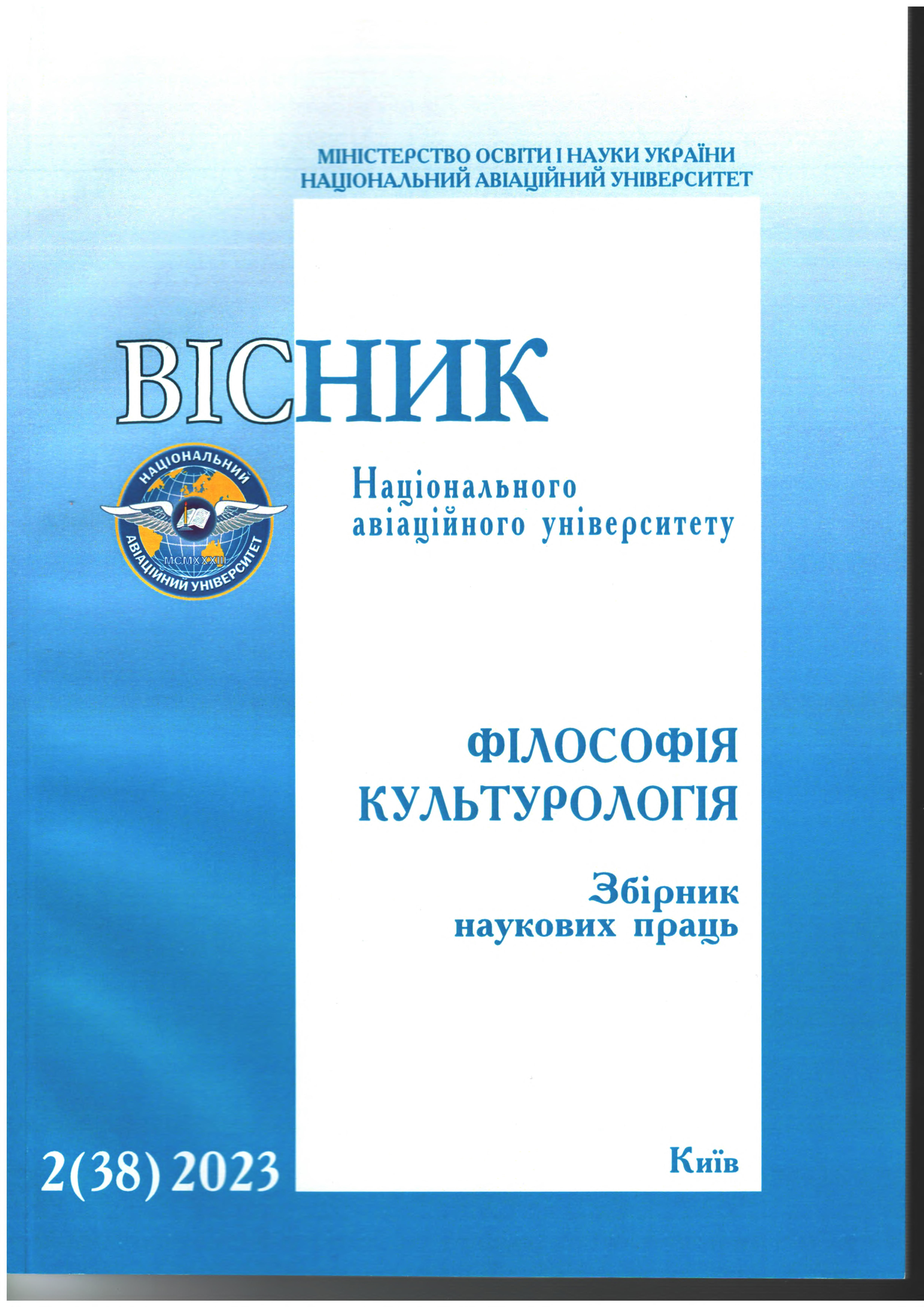RELIGIOUS CONSCIOUSNESS IN THE CONTEXT OF GLOBALIZATION PROCESSES
DOI:
https://doi.org/10.18372/2412-2157.2.18112Keywords:
man, consciousness, religion, globalization, sacred, profane, world, traditions, church, experiences, society, social institutionsAbstract
Introduction. The article is devoted to studying the philosophical foundations of globalization, the mutual influence of globalization and religion, and the place of the religious factor in modern globalization processes. The concept of "religious consciousness" is highlighted separately, which is not a constant value. In the era of globalization, certain changes in religious terms affect the consciousness of modern believers and their attitude to the sphere of the sacred and the profane. The aim of the article is to reveal those new meanings and contents that have been brought by modern globalization processes to the consciousness of a person, to the peculiarities of his attitude to himself, other people and the world as a whole. Research methodology. The main methodological principle for researching the peculiarities of a person's semantic load, new orientations of his being in the context of globalization, is an interdisciplinary approach, which allows to highlight essential changes in human psychology, his spiritual and value orientations, as well as in the attitude to his essence. The sociocultural approach reveals the specifics of experiencing and living as a human being in the new trends of the globalist world. Research results. Attention is drawn to attempts to create a so-called "unified religion", which leads to the actual destruction of human value orientations. It was religious consciousness that influenced and influenced the formation of value orientations, worldview, preservation of traditions, upbringing, and education. Discussion. The idea of "unifying the world" has existed for many centuries and was believed to be the only possible approach for all of humanity. Both negative and positive consequences of globalization processes are outlined. Conclusions. The main conclusion is that the problem of tolerance, which should be implemented based on the principle of humanism, freedom of consciousness, rejection of different religions on their priority, treatment of each religion as a cultural value, as a cultural phenomenon. Changes in religious consciousness are possible only based on dialogue, which will allow one to approach the solution of many problems of the modern world.
References
Darhrendorf R. Auf der Suche nach einer neuen Ordnung. Eine Politik der Freiheit fur das 21. Jahrhundert. 2013. Verlag C.H. Beck
oHG, Munchen. Р.15-43.
Dawson C. Dynamics of World History. 2018. La Salle, IL: Sherwood Sugden Co. Р. 34-45.
Forces bring down terror in Jammu and Kashmir 2008. The Economic Times. 16.04. 56 р.
Garaudy R. Ou allons nous. 1990. Paris. Р. 20-67.
Gelber K. 2002. Speaking Back. The free speech versus hate speech debate. Amsterdam-Philadelphia. Р. 36-60.
Glaeser E.G. 2005.The Political Economy of Hatred. Quarterly Journal of Economic. № 120 (1). P. 45–86. URL:
http://econ.tau.ac.il/papers/faculty/w917.pdf.
Кримський С. Б. Під сигнатурою Софії. К.: Вид. дім «Києво-Могилянська академія», 2008. 367 с.
Huntington S.P. 2004. Who Are We? The Challenges to America's National 1.entity. New York: Sivon & Schuster. 428 p.
Lorenz K. 1983. Das Sogenannte Bose. Zur Naturgeschichte der Aggression. Wien. P. 24-57.
Pradetto A. 1998. Konfliktmanagement durch militarische Intervention? Dilemmata westlicher Kosovo-Politik. Hamburg:
Universitat der Bundeswehr. Р. 34-40.
Spielmann M. 1999. Das Westen und Kosovo Internationale Politik. № 8. Р. 23-24.
Шоріна Т. Г. Глобальні ризики суспільства та проблема захисту прав людини (на прикладі міжнародного тероризму). Вісник Національного авіаційного університету. Серія.: Філософія. Культурологія. № 2 (24). 2016. С.75-79.


